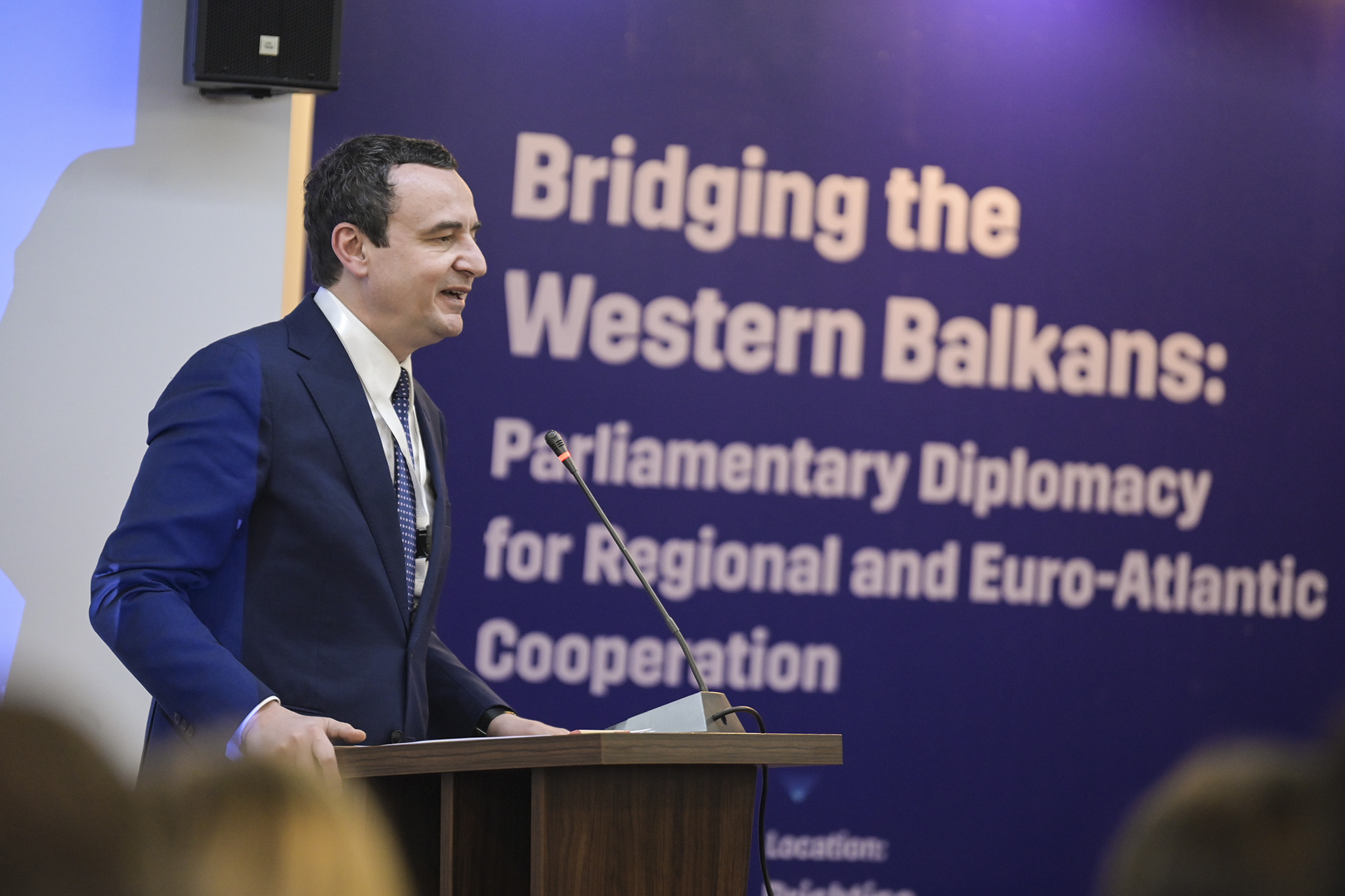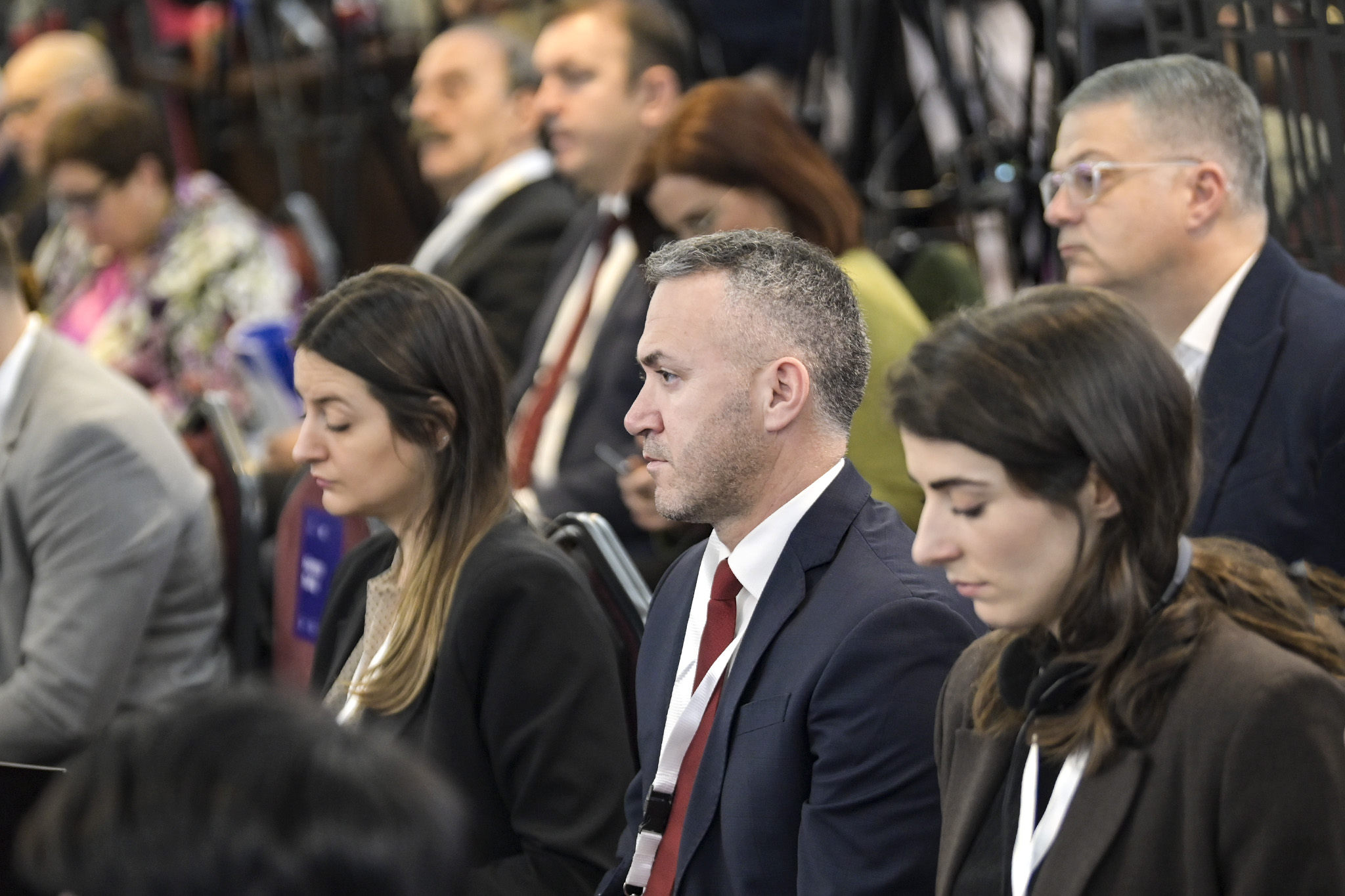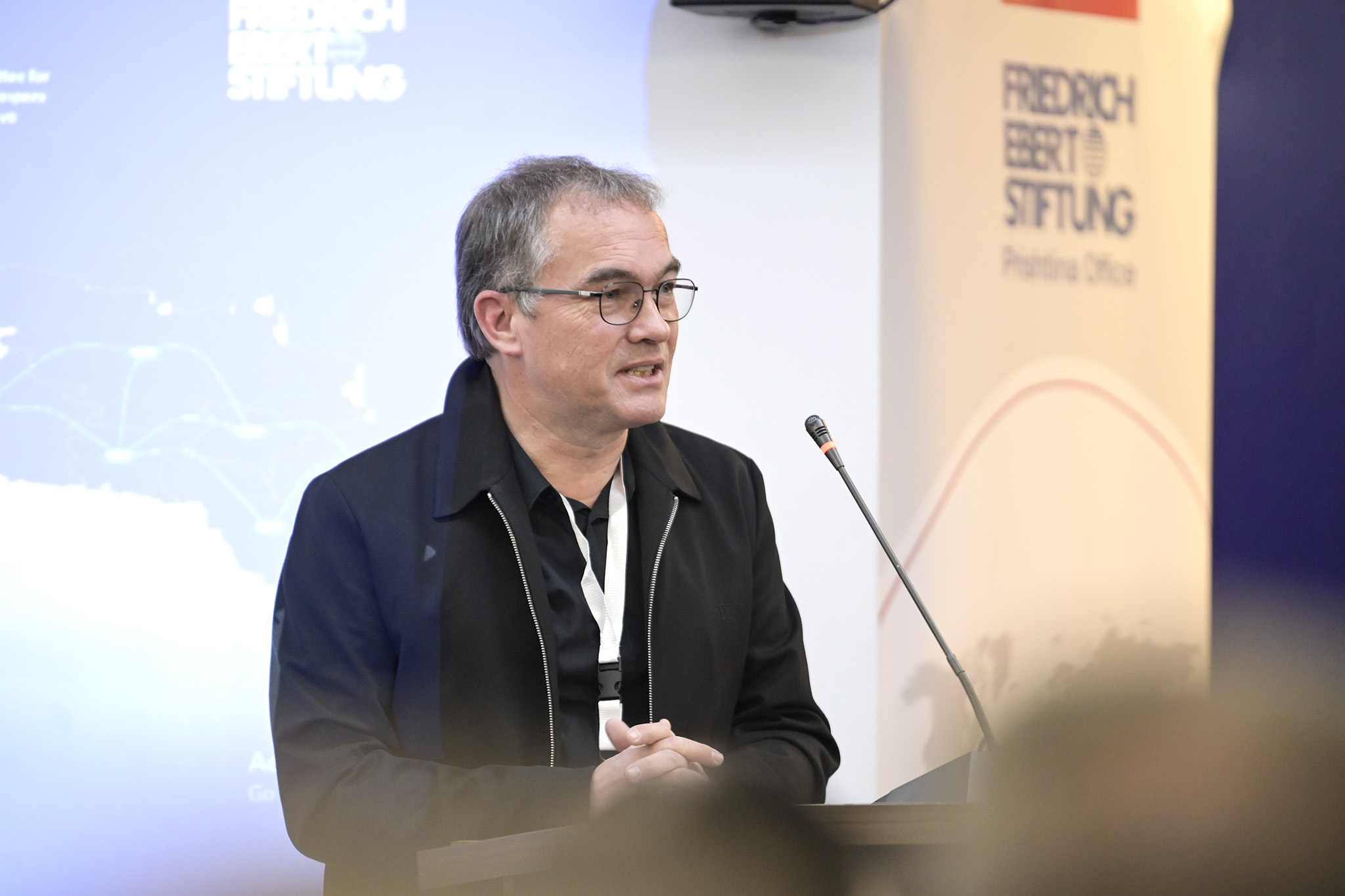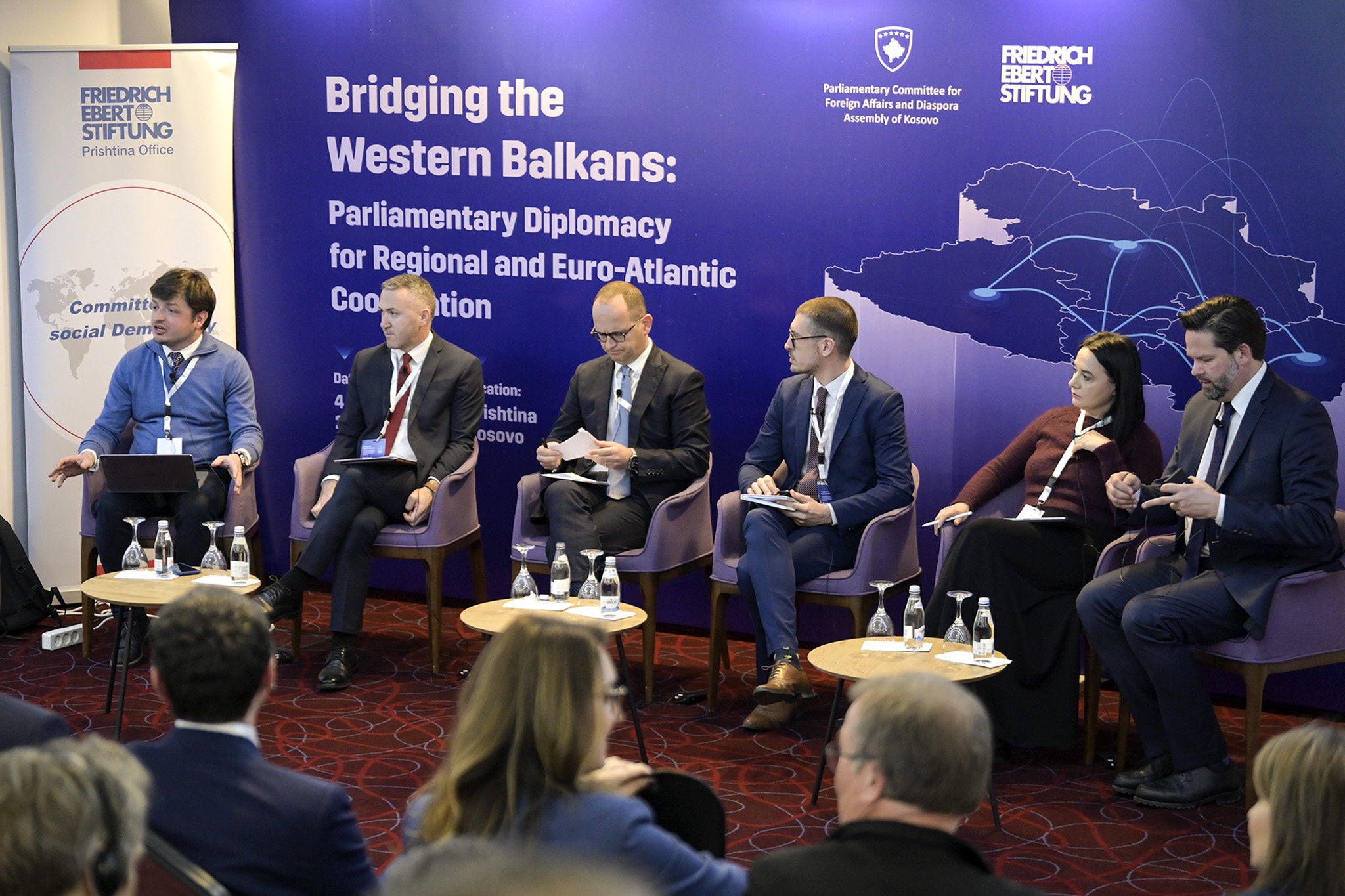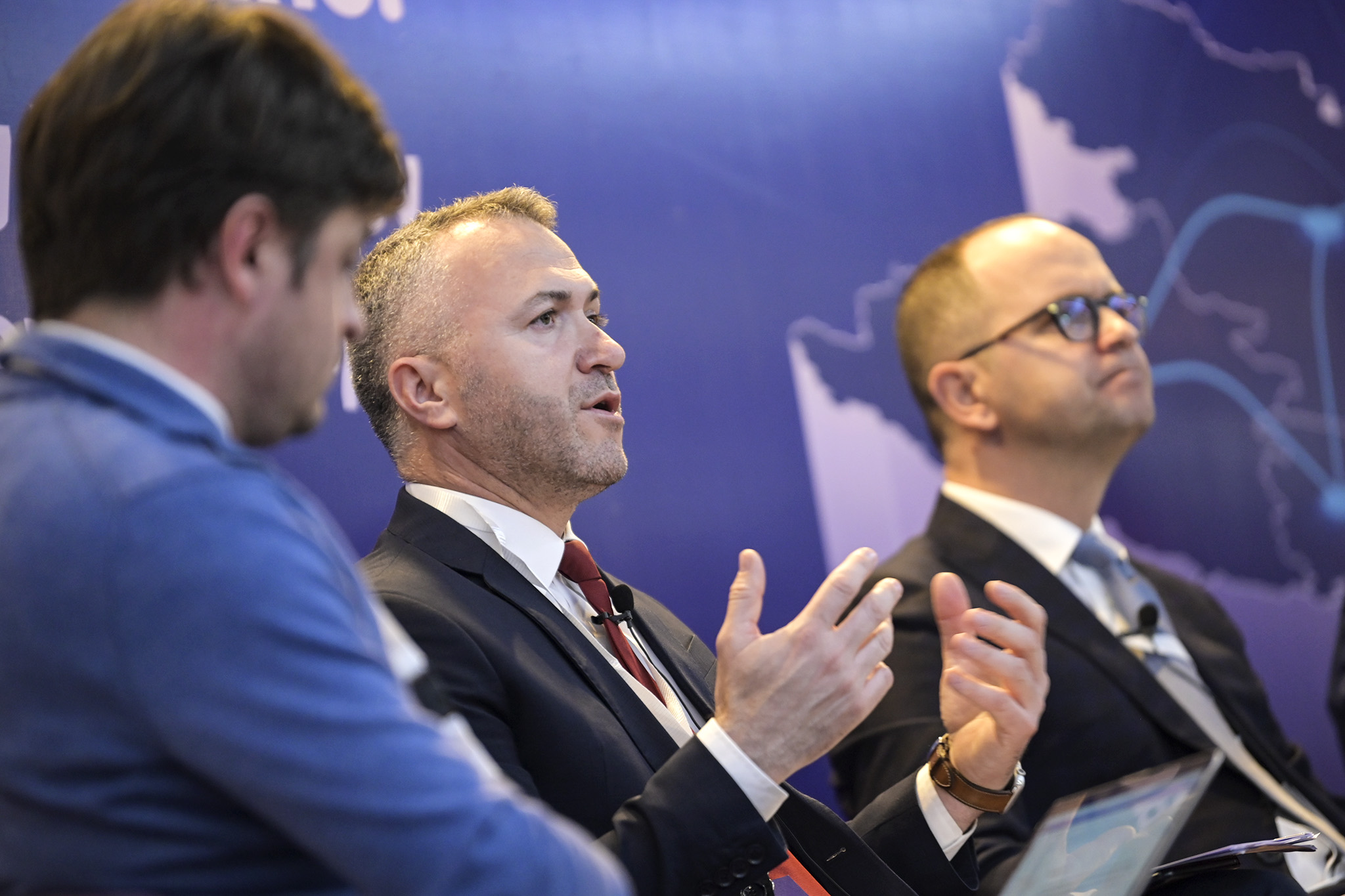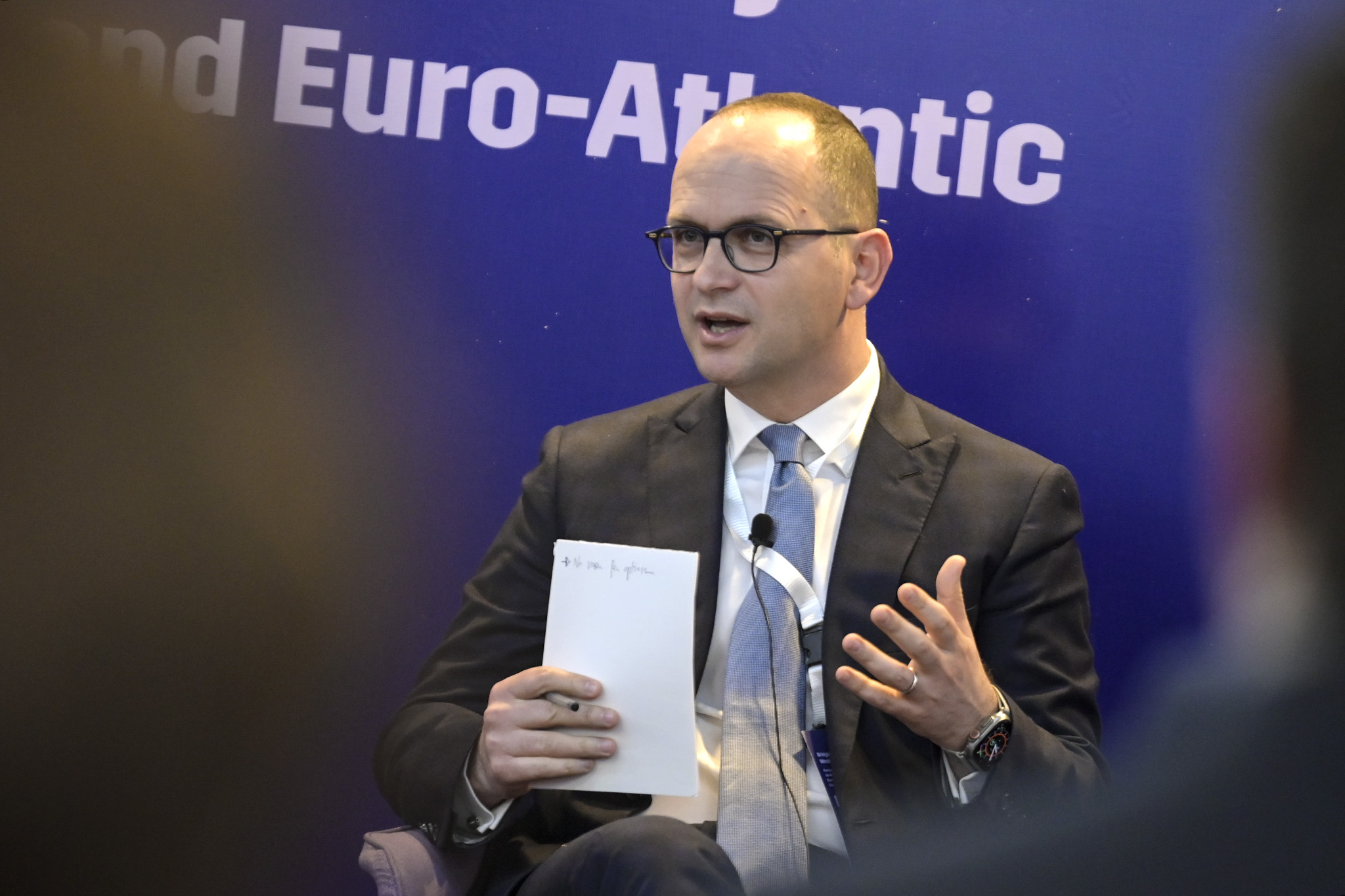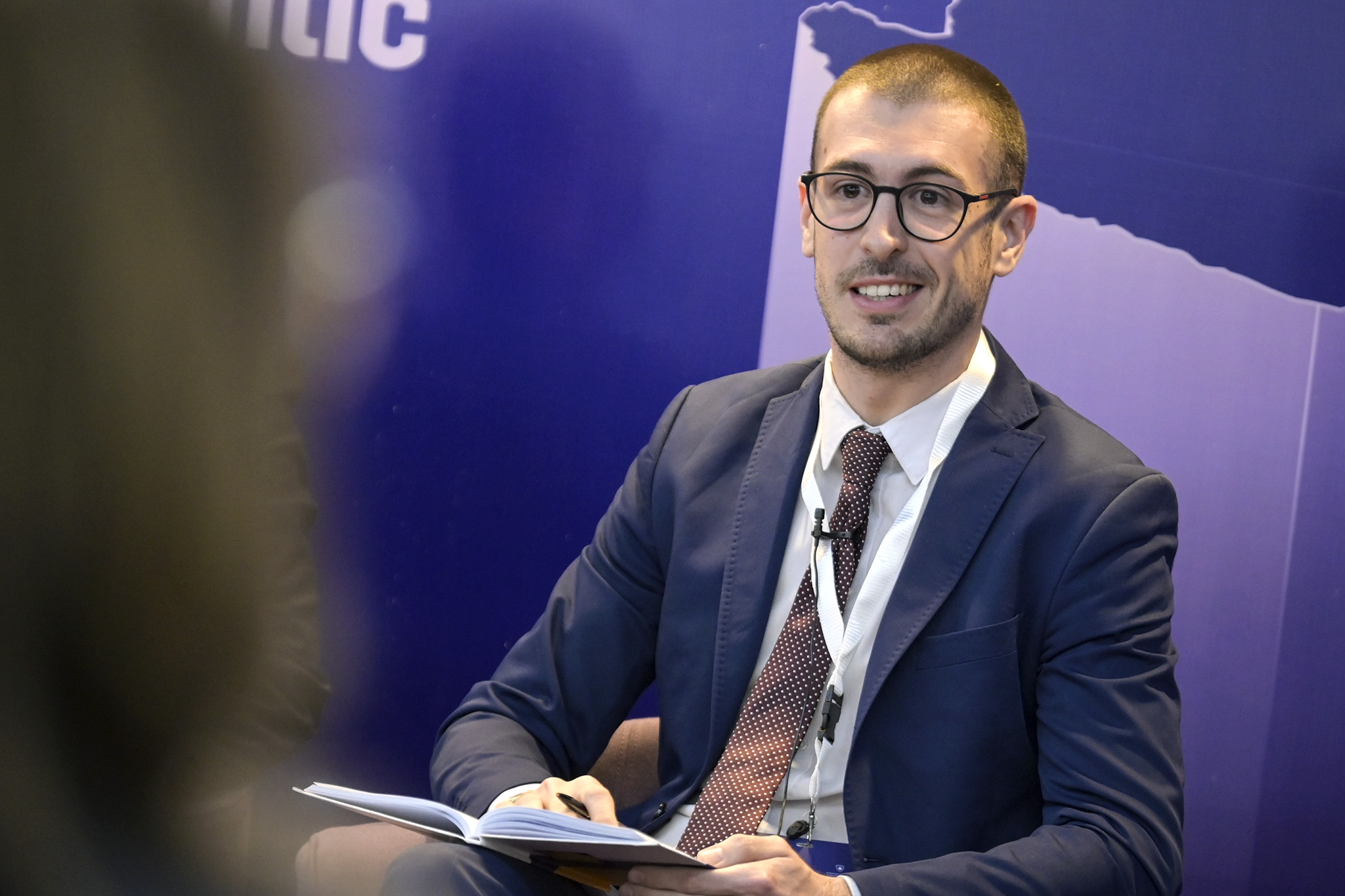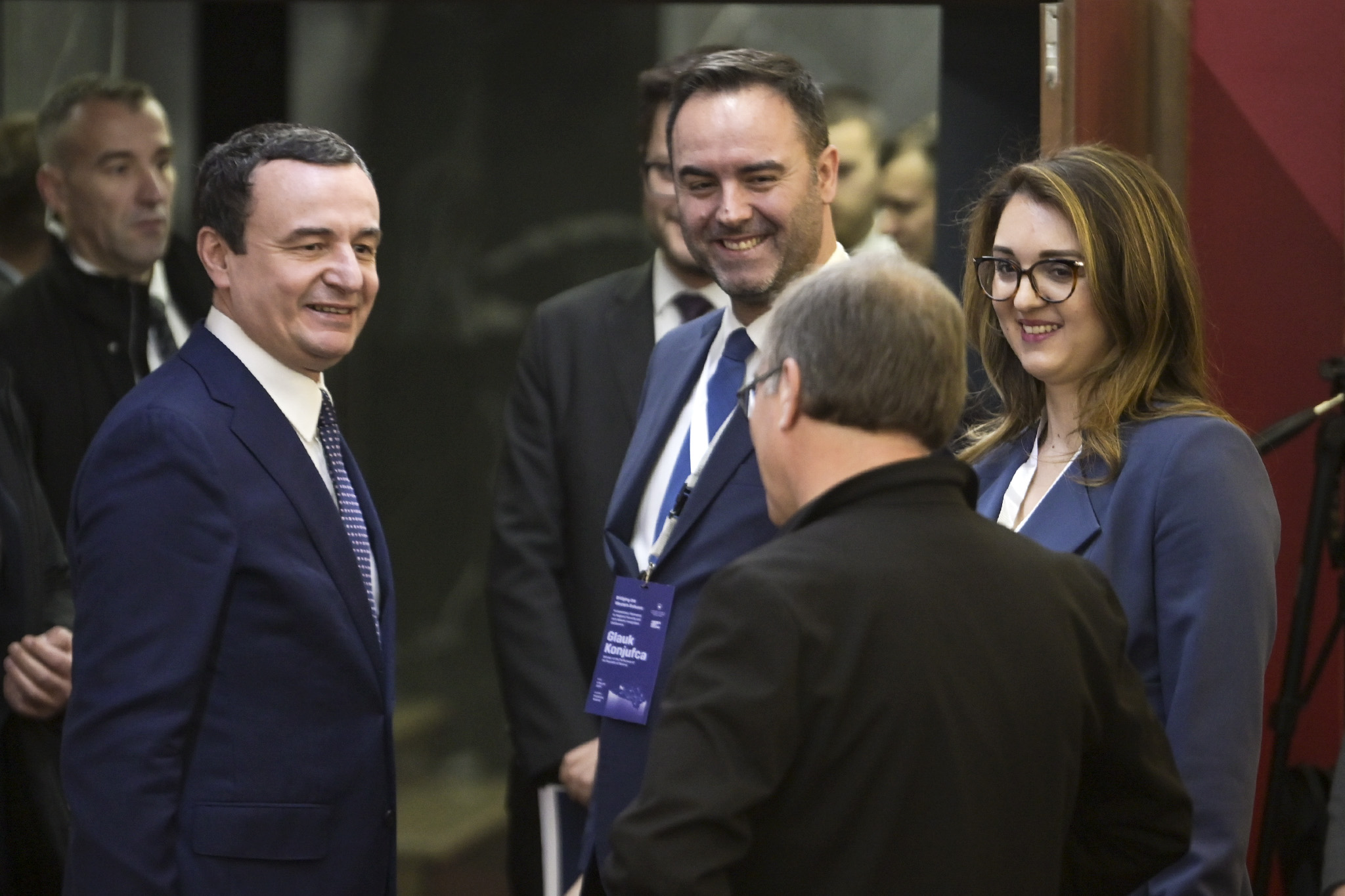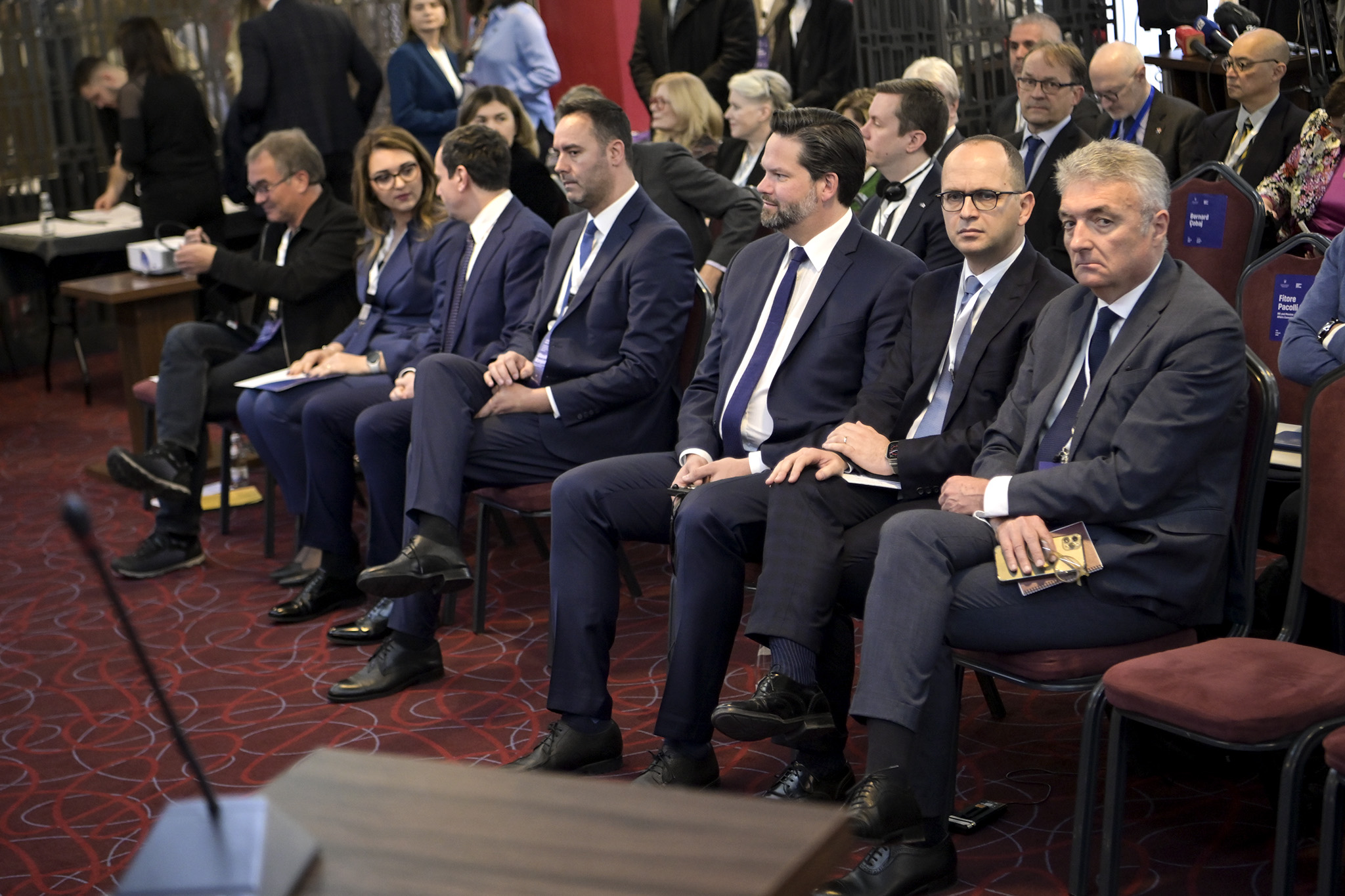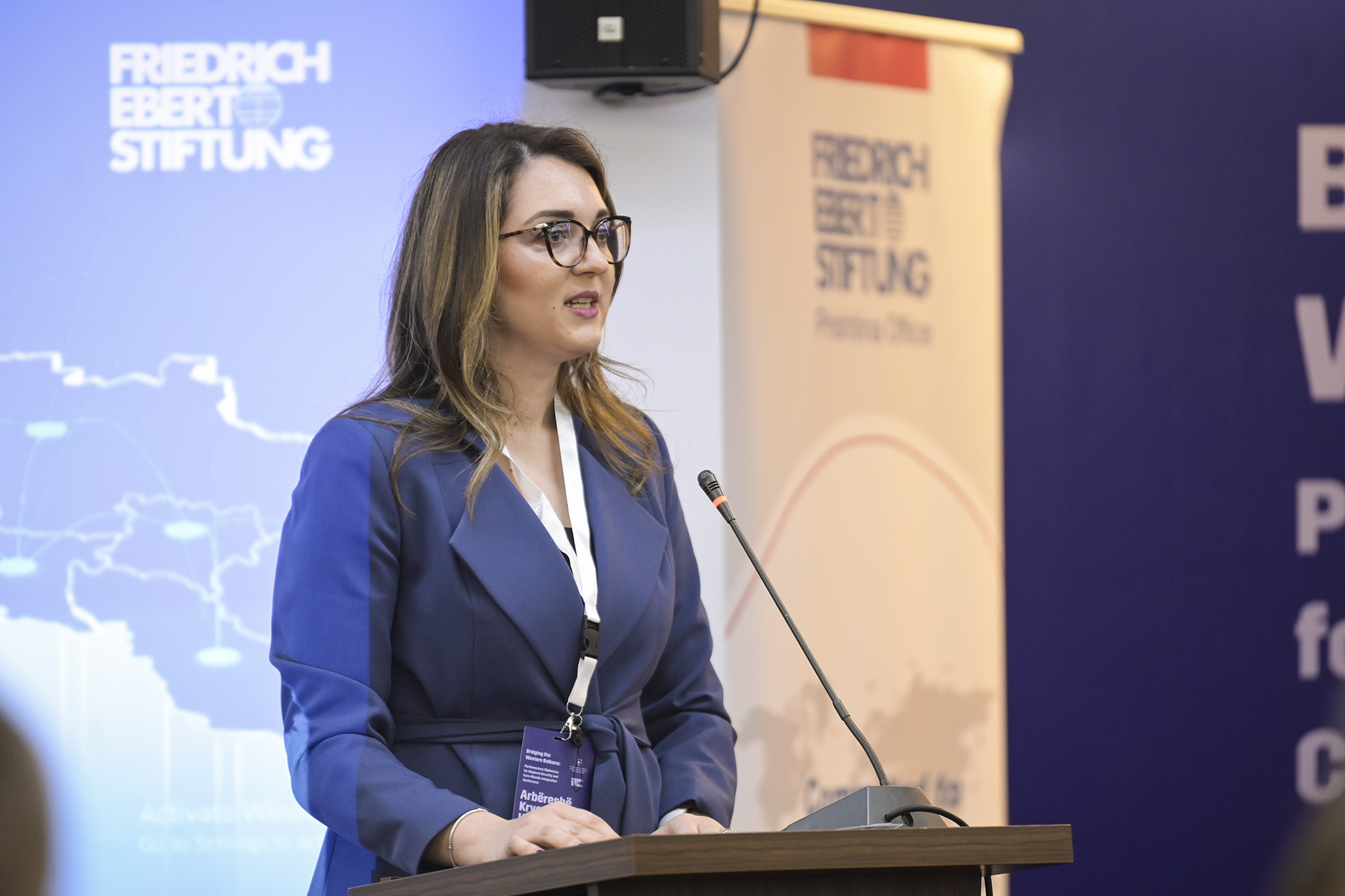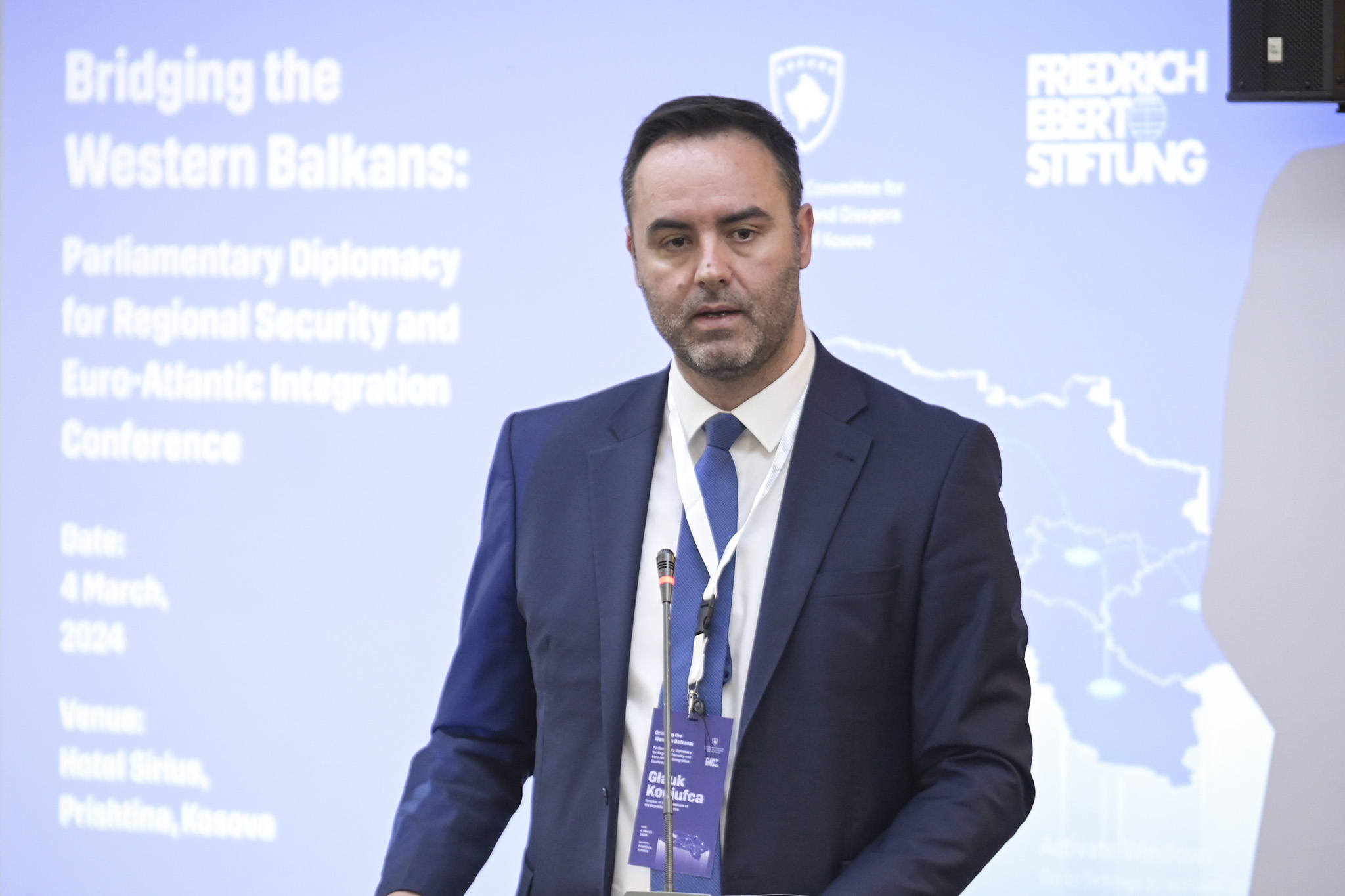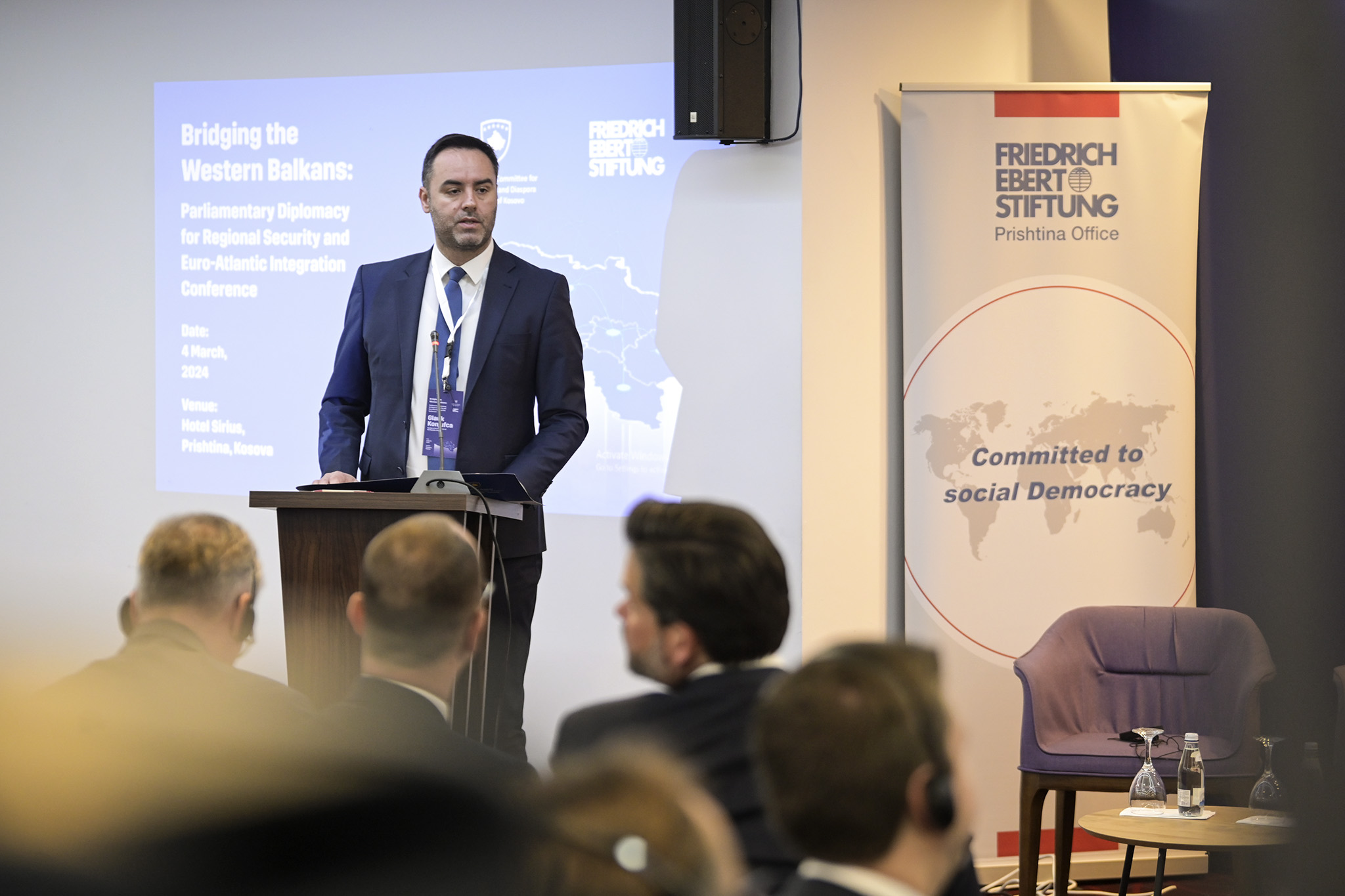Prishtina, 4 March, 2024
The Prime Minister of the Republic of Kosovo, Albin Kurti, today participated in the conference “Bridging the Western Balkans: Parliamentary Diplomacy for Regional Security and Euro-Atlantic Integration”, organized by the Parliamentary Committee for Foreign Policy and Diaspora in cooperation with FES, event in which was attended by parliamentarians, ambassadors, civil society activists, academics and other representatives.
In his speech, Prime Minister Kurti highlighted that parliamentary diplomacy is needed more than ever to help Europe navigate the current complexity and confront old narratives.
“The road to regional and Euro-Atlantic cooperation is not without obstacles. There are still historical grievances, political differences and socio-economic inequalities, which often threaten to divide us rather than unite us. This is why we must promote the principles of dialogue and inclusiveness – which are essential for building bridges between our people and our countries”, said the Prime Minister.
He said that the topic of today’s conference fits the current developments, because there are forces that seek to divide us, as he added that the Euro-Atlantic perspective should be strengthened since it is a guide for peace and security, stability and prosperity for the Western Balkans.
Speaking about the application and process of Kosovo’s membership in the European Union and the Council of Europe, he said that progress in this direction does not all depend on democracy and respect for human rights and non-majority communities – because every democratic country in the European Union and the Council of Europe believes that Kosovo is the most advanced democracy in the region and that our constitution is the most advanced in Europe when it comes to protecting the rights of minorities or non-majority communities, but it also depends on the behavior of an authoritarian regime, such as Serbia, which is not interested in being a part of NATO and the EU, tries to block the progress of the region in order to keep the whole region behind.
“The European Union and NATO have rightly responded to Russian aggression and security threats to Europe, not by appeasing Putin, but by admitting Finland and Sweden to NATO and granting candidate status to Ukraine, Georgia and Moldova. The security threat to the Western Balkans from Serbia should be addressed using the same approach, giving Kosovo candidate status in the European Union and membership in the Council of Europe,” he said.
In the end, the prime minister emphasized that the voice and work of the parliamentarians is very important, because the role of the parliament is not measured only by the laws and resolutions it approves, but also by the lives it touches and the future it shapes.
Prime Minister Kurti’s complete speech:
Honorable, Mr. Glauk Konjufca, Speaker of the Parliament of the Republic of Kosova,
Dear, Mrs.Arbreshë Kryeziu Hyseni, Chair of the Committee of Foreign Affairs and Diaspora of the Assembly of Kosova,
Dear Dr. Peter Hurrelbrink, Friedrich-Ebert-Stiftung (FES), Foundation Director,
Dear, Mr. Lukas Mandel, Member of the European Parliament and the Chairman of the Austrian-Kosovar friendship association
Excellency ambassadors and the representatives of diplomatic missions in Kosova,
Dear former foreign ministers of Albania and Montenegro, My dear friend, Ditmir Bushati and Miodrag Vlahović,
Dear members of Parliament and ministers of the Government,
Distinguished guest,
Ladies and gentleman,
It is my pleasure to address you today at this event, which has brought together parliamentarians, ambassadors, civil society activists, former government officials, and academicians from across Europe, to discuss important matters for our continent.
Parliamentary diplomacy is needed more than ever today to help Europe navigate current complexities and confront old narratives. The road to regional and Euro-Atlantic cooperation is not without its obstacles. There are still historical grievances, political differences, and socio-economic disparities, which often threaten to divide rather than unite us. That is why we need to promote the principles of dialogue and inclusivity — which are essential to building bridges among our people and countries.
The idea that particular ethnicities, races, cultures, and groups are superior to others is an old stereotype — one that has led the world to so much hate and destruction in the past. However, the methods with which they are being propagated are new. Although the internet has connected billions of people and given activists a voice in opposing injustice and mobilizing people, we are also seeing that the same technology and platforms are enabling some of humanity’s worst impulses.
Mass media has changed, everyone today with a social media account can spread their narrative to millions, if not billions, of people instantly. This has made it easy to fall prey of what psychologists call a confirmation bias – namely, the tendency to select facts and opinions that reinforce our preexisting worldviews and filter out the ones that don’t. But we also directly witness misinformation and disinformation campaigns which are not based on selective facts, but on total lies. A hybrid war.
Unfortunately, the war in Ukraine isn’t happening in a vacuum. There is a tide of autocrats all over the world who actively seek to subvert democracy and undermine hard-won human rights. Despotic President Putin, has only emboldened such autocrats. Right here in our region, we see how an autocratic regime in Serbia has been turbocharged by Russia’s invasion of Ukraine. In our first two years of government, they brought four times the army to our border, sponsored terrorism, and continuously spread lies and false narratives to justify their aggressive acts towards Kosova and the region. We cannot be complacent. We cannot take our democracy nor our progress for granted.
The theme “Bridging the Western Balkans: Parliamentary Diplomacy for Regional and Euro-Atlantic Cooperation” is certainly fitting because there are forces who seek to divide us.
The Euro-Atlantic perspective must be reinforced. It is a roadmap for peace and security, stability and prosperity for the Western Balkans. By aligning with the principles and values of the European Union and NATO, those who truly want to, can unlock a wealth of opportunities for economic development, security cooperation, and democratic governance.
The Republic of Kosova is unshakably committed to this path. In the last three years of our government, we have had the fastest rise in all democratic indicators in the region. We have joined sanctions against Russia’s aggression against Ukraine and strengthened democracy at home. We are not just committed but we have pushed for more regional cooperation within the framework of the Berlin Process and based on European Union rules and values. We are working hard to remove barriers to trade and commerce among the Western Balkan Six countries through implementation of the Common Regional Market and accelerate membership in the European Union through European Union’s Growth Plan.
Yet, the journey towards Euro-Atlantic integration is not one that can be undertaken alone. It requires the unwavering support and solidarity of the international community, as well as a genuine commitment to reforms and reconciliation from within.
Just as democracy must not be taken for granted, I also believe that democratic progress should not be taken for granted. We have seen, too often perhaps, that there are competing forces with different work ethics who offer a different vision. Kosova’s democratic progress must be supported by all democratic forces across the Atlantic, a Trans-Atlantic solidarity as Mr. Konjufca was emphasizing.
This means, first and foremost, support for our membership in international organizations. On May 12, 2022, we applied for membership in the Council of Europe, and on December 15, 2022, we applied for membership in the European Union. Last year, on April 24, our application in the Council of Europe was transmitted to the Parliamentary Assembly, while our application for EU membership has not yet been put on the agenda of the European Council to authorize the Commission to send us the questionnaire.
Every democratic country in the European Union and Council of Europe believes that Kosova is the most advanced democracy in the region and that our constitution is the most advanced in Europe when it comes to the protection of minority rights or non-majority communities. Yet, the reasons for the lack of progress for Kosova’s membership in the European Union and Council of Europe do not lie in democracy and strong protection of human and minority rights, but on the behavior of an authoritarian regime. Because Serbia is not interested in NATO nor EU membership, it seeks to block the progress of the whole region, holding back the entire region.
The European Union and NATO have rightly responded to Russia’s aggression and security threats to Europe, not by appeasing Putin, but by bringing Finland and Sweden into NATO and giving candidate status to Ukraine, Georgia, and Moldova. The security threat to the Western Balkans by Serbia should be dealt with using the same approach, thus giving Kosova candidate status in the European Union and membership in the Council of Europe.
In this regard, I think your voice and your work matters, because the role of the parliament is not only measured by the laws and resolutions it passes, but in the lives it touches and the future it shapes. With your voice and your work, you can shape the future of this region.
I thank the Chairwoman of the Committee of Foreign Affairs and Diaspora, Mrs. Kryeziu-Hyseni, and Speaker of Parliament, Mr. Konjufca, for bringing us together, and FES for supporting this event. The Parliament should have all necessary support to fulfill its duties and utilize its opportunities in parliamentary diplomacy.
Thank you very much.
Last modified: March 5, 2024
